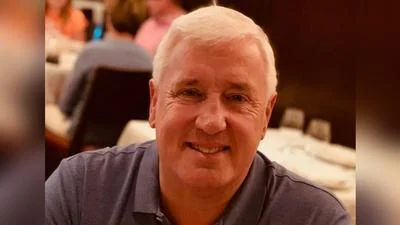Culbertson Memorial Hospital issued the following announcement on Oct. 15.
Millions of Americans are living with a mental health condition. Mental illnesses affect everyone directly or indirectly through family, friends and coworkers. Despite mental illnesses’ reach and prevalence, stigma and misunderstanding are also widespread.
Approximately 1 in 5 adults in the U.S. will experience mental illness.
Approximately 1 in 25 adults in the U.S. will experience a serious mental illness that interferes with one or more major life activities.
Serious mental illness costs America $193.2 billion in lost earnings per year.
Mood disorders, including major depression, dysthymic disorder and bipolar disorder, are the third most common cause of hospitalization in the U.S. for both youth and adults aged 18–44.
Only 41% of adults in the U.S. with a mental health condition are receiving mental health services.
Half of all chronic mental illness begins by age 14.
Adults in the U.S. living with serious mental illness die on average 25 years earlier.
Suicide is the 10th leading cause of death in the U.S., the 3rd leading cause of death for people aged 10–14 and the 2nd leading cause of death for people aged 15–24.
More than 90% of children who die by suicide have a mental health condition.
Each day an estimated 18-22 veterans die by suicide.
Knowing the warning signs can help you determine if you need to speak to a professional. Getting an accurate diagnosis is the first step in a treatment plan.
Each illness has its own symptoms, but common signs of mental illness can include the following:
Excessive worrying or fear
Feeling excessively sad or low
Confused thinking or problems concentrating and learning
Extreme mood changes, including uncontrollable “highs” or feelings of euphoria
Prolonged or strong feelings of irritability or anger
Avoiding friends and social activities
Difficulties understanding or relating to other people
Changes in sleeping habits or feeling tired and low energy
Changes in eating habits such as increased hunger or lack of appetite
Changes in sex drive
Difficulty perceiving reality (delusions or hallucinations)
Abuse of substances like alcohol or drugs
Multiple physical ailments without obvious causes (such as headaches, stomach aches, vague and ongoing “aches and pains”)
Thinking about suicide
Inability to carry out daily activities or handle daily problems and stress
An intense fear of weight gain or concern with appearance
After diagnosis, a health care provider can help develop a treatment plan that could include medication, therapy or other lifestyle changes.
Don’t be afraid to reach out if you or someone you know needs help. Learning all you can about mental health is an important first step. Reach out to your health insurance, primary care doctor or state/country mental health authority for more resources.
If you or someone you know needs help now, you should immediately call the National Suicide Prevention Lifeline at 1-800-273-8255 or call 911.
Original source can be found here.

Source: Culbertson Memorial Hospital





 Alerts Sign-up
Alerts Sign-up